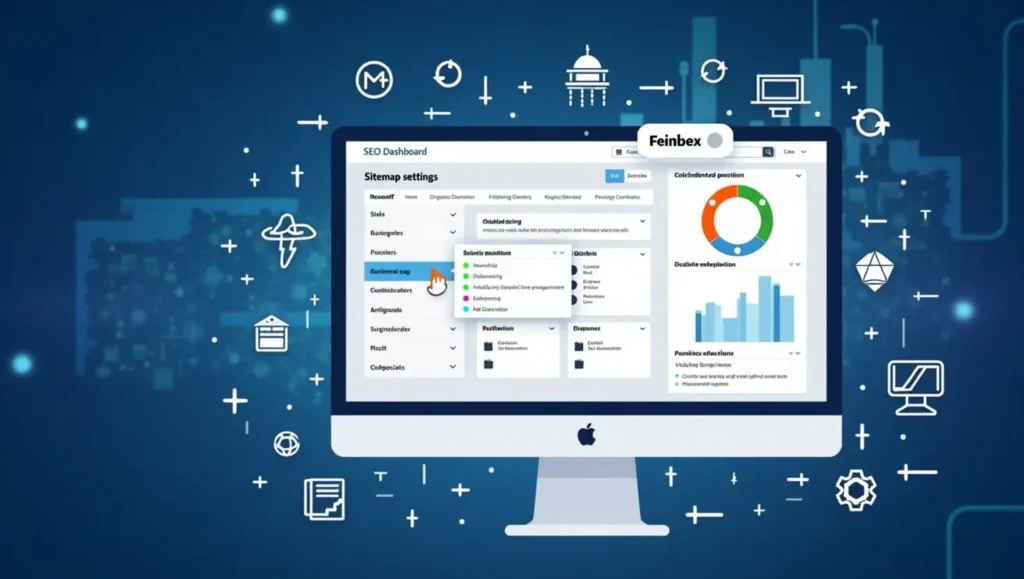In today’s fast-paced digital landscape, AI-driven content generation and optimization have become indispensable tools for SEO professionals and digital marketers. As businesses strive to remain competitive, the ability to create high-quality, optimized content efficiently is crucial for success.Learn more about Agile SEO strategies to ensure your brand stays ahead in search rankings.
to ensure your brand stays ahead in search rankings. AI-powered solutions not only accelerate content creation but also ensure that it aligns with search engine algorithms, user intent, and industry best practices. This blog explores how AI content generation and optimization integrate into an Agile SEO framework, providing businesses with scalable and adaptive growth strategies. For a broader understanding of AI-powered SEO tools, check out 7 Powerful Features of AI-Powered SEO Tools and Their Game-Changing Benefits.

Table of Contents
ToggleUnderstanding Agile SEO & AI's Role
Agile SEO is a flexible and iterative approach to search engine optimization that emphasizes adaptability, rapid experimentation, and data-driven decision-making. Unlike traditional SEO, which often relies on long-term, static strategies, Agile SEO leverages continuous monitoring and optimization. AI plays a pivotal role in this methodology by enabling:
- Automated content creation: AI-driven tools generate high-quality blog posts, meta descriptions, and social media content in minutes.
- Real-time SEO optimization: AI analyzes ranking factors and suggests improvements to enhance content performance.
- Predictive analytics: Machine learning models anticipate future search trends and guide content strategy accordingly.
- Scalability: AI allows businesses to produce large volumes of optimized content while maintaining consistency and quality.
- For more on how AI enhances SEO workflows, read AI SEO Automation: Top Scaling Solutions to Dominate 2025.
AI-Powered Content Generation: Efficiency Meets Quality
1. AI Writing Assistants
AI-driven tools like ChatGPT, Jasper, and Copy.ai assist marketers in generating blog posts, product descriptions, and ad copy. These tools use natural language processing (NLP) to create human-like text that aligns with SEO best practices.Compare the best AI SEO tools to find the right fit for your content strategy. For a detailed list of tools, visit Top 7 AI SEO Tools for Scaling Agile Solutions Like an Expert.
Example: A digital marketing agency used Jasper to create product descriptions for an eCommerce client. The AI-generated content was optimized for search intent, resulting in a 25% increase in organic traffic.
2. Content Structuring with AI
AI can analyze top-ranking content and suggest structures that align with search intent. Tools like Clearscope and SurferSEO provide keyword recommendations, readability analysis, and content outlines to improve engagement and rankings.
Tip: Use AI-powered content briefs to ensure your articles include semantically relevant keywords and headings that match user queries. For more on AI-driven content strategies, read Master AI Content and Agile SEO in 2025: The Game-Changing Formula.
3. AI-Assisted Editing & Proofreading
Grammar checkers like Grammarly and Hemingway improve readability, while AI-driven tone analyzers ensure content matches the brand voice. This enhances credibility and engagement, two key factors in SEO. For more on content optimization, explore 6 Predictive SEO Strategies Using AI to Dominate Future Rankings.
Example: A finance blog integrated Grammarly’s AI-driven insights, improving readability scores by 30% and boosting time-on-page metrics.
AI for SEO Optimization: Enhancing Visibility & Rankings
1. AI-Powered Keyword Research
Traditional keyword research can be time-consuming, but AI tools like SEMrush, Ahrefs, and Google’s BERT model analyze search trends and user intent efficiently.Discover advanced keyword research strategies to improve your SEO efforts.
Tip: Use AI-driven keyword clustering to group related search terms, improving content structure and internal linking.
2. Automated On-Page Optimization
AI-powered platforms like Frase and MarketMuse analyze competitor content and suggest improvements. These tools ensure:
- Proper keyword placement
- Optimal meta descriptions and title tags
- Readability enhancements
Example: A SaaS company used MarketMuse to optimize existing content, leading to a 40% increase in organic search traffic within three months.
3. AI for Technical SEO & SERP Optimization
AI can detect broken links, optimize schema markup, and improve Core Web Vitals. Google’s RankBrain algorithm prioritizes user experience, and AI-driven insights can help enhance page load speeds and mobile usability.
Tip: Leverage AI-driven tools like Screaming Frog SEO Spider to identify technical SEO gaps.

Advanced AI Strategies for Agile SEO
1. AI-Generated Video & Multimedia Content
With video content dominating search results, AI tools like Pictory and Synthesia automate video generation based on text scripts. This allows businesses to enhance engagement and reach wider audiences.
Example: A travel company used Synthesia to generate AI-powered video guides, increasing engagement rates by 50%.
2. AI-Driven Personalization for SEO
Personalization plays a critical role in SEO. AI-driven recommendation engines analyze user behavior and suggest tailored content. For more on personalization, check out Unlock 10X SEO Growth: How AI-Powered Analytics is Changing the Game.
Tip: Use AI personalization tools like Dynamic Yield to deliver relevant content recommendations based on user intent.
3. AI for Voice Search Optimization
With the rise of voice search, AI-powered NLP tools help optimize content for conversational queries and featured snippets.
Example: A local restaurant optimized its website for voice search using AI-driven keyword research, leading to a 35% increase in local search traffic.
AI & Content Distribution: Maximizing Reach & Engagement
1. AI-Powered Social Media Optimization
AI tools like Buffer and Lately analyze social media trends and automate post scheduling for maximum visibility.
Tip: Use AI-generated insights to craft compelling headlines and captions that boost click-through rates.
2. AI for Automated Email Marketing
AI-powered email marketing tools like Phrasee optimize subject lines, CTAs, and send times for higher engagement.
Example: An eCommerce brand used Phrasee to optimize email campaigns, resulting in a 22% increase in open rates.
Actionable Tips for Implementing AI Content Generation & Optimization
- Define Clear Objectives – Increase organic traffic, improve engagement, or boost conversions.
- Leverage AI for Research – Use AI-driven insights to analyze competitors and identify content gaps.
- Combine AI with Human Expertise – AI-generated content should always be reviewed and refined by human editors.
- Test & Iterate – Agile SEO requires constant testing—use AI-powered A/B testing tools to refine headlines, CTAs, and content formats.
- Monitor Performance Metrics – Use AI analytics tools to track rankings, CTRs, and user engagement, adjusting strategies accordingly.
Conclusion
AI content generation and optimization are revolutionizing Agile SEO by providing scalable, data-driven solutions for content creation and enhancement. Businesses that integrate AI-powered tools into their SEO strategy can stay ahead of the competition, ensuring high-quality content that resonates with audiences and aligns with search engine algorithms.
Thought-Provoking Question:
How can businesses balance AI-driven automation with human creativity to create truly engaging and optimized content?
By adopting AI-powered solutions and maintaining an agile mindset, digital marketers can enhance their SEO strategy, improve user experience, and drive sustainable growth in 2025 and beyond.
FAQs
1. How does AI improve content generation for SEO?
AI improves content generation by using natural language processing (NLP) to create high-quality, relevant, and optimized content. AI tools like ChatGPT, Jasper, and Copy.ai analyze search trends, user intent, and ranking factors, ensuring that the content aligns with SEO best practices.
2. What are the best AI-powered tools for SEO optimization?
Some of the best AI-powered SEO tools include:
- Keyword Research: SEMrush, Ahrefs, Google BERT
- Content Optimization: Clearscope, SurferSEO, MarketMuse
- Technical SEO: Screaming Frog SEO Spider, PageSpeed Insights
- AI Writing Assistants: Jasper, Copy.ai, ChatGPT
3. How does AI help with Agile SEO strategies?
AI supports Agile SEO by enabling real-time data analysis, predictive insights, and automated content creation. AI-driven tools continuously monitor keyword trends, competitor performance, and user behavior, allowing businesses to adapt quickly and make data-driven SEO decisions.
4. Can AI-generated content rank on Google?
Yes, AI-generated content can rank on Google if it meets E-E-A-T (Experience, Expertise, Authoritativeness, Trustworthiness) guidelines. AI should be used to enhance content quality, structure, and optimization, but human oversight is essential to ensure accuracy, originality, and user engagement.
5. How does AI optimize content for voice search?
AI optimizes content for voice search by analyzing conversational queries, long-tail keywords, and natural language patterns. Tools like Google’s BERT, AnswerThePublic, and NLP-based AI models help tailor content for featured snippets and voice assistants like Alexa and Google Assistant.
6. How can businesses balance AI automation with human creativity in SEO?
To balance AI automation with human creativity, businesses should:
- Use AI for data-driven insights, content structuring, and optimization.
- Keep human oversight for brand voice, storytelling, and engagement.
- Regularly update and refine AI-generated content based on user feedback and SEO performance metrics.



